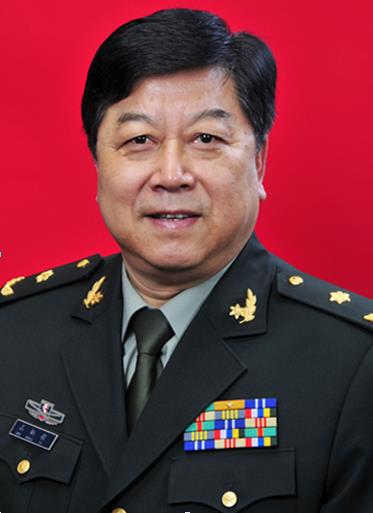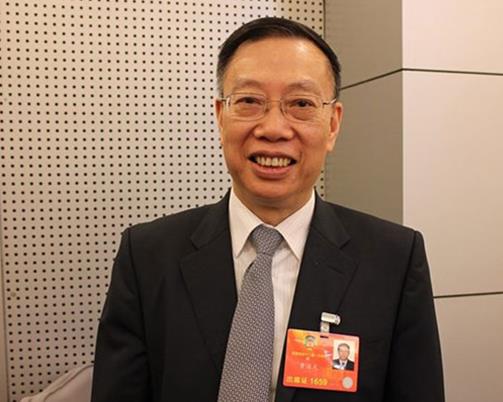
Professor Shi Bingyi, vice chairman of Organ Transplantation Branch of Chinese Medication Association (CMA)
Organ shortage is a severe problem that many countries are facing with, especially in China, the problem is even more prominent. Huang Jiefu, chairman of committee of China Human Organ Donation Committee, stated when interviewed by domestic and foreign media that voluntary organ donation from death sentence prisoners is the main source for organs in mainland China. All the donations shall be approved by the person himself and his family member. However, this kind of situation could not continue. China now is building its own human organ donation system to encourage citizens donate organs voluntarily after death in order to get rid of the current situation.
In mainland China, there are around 300,000 people waiting liver and kidney transplantation every year, but only 10,000 are lucky to receive one. The supply and demand ratio is 1:30, as the ratio in the US is 1:4. The wide gap of the ratios means that most of the patients who have organ failure will die after endless waiting.
There are three main sources of organs in China, live organs of relatives, organs voluntarily donated by dead citizens and organs donated by death prisoners. Huang Jiefu, chairman of committee of China Human Organ Donation Committee honestly said that for a very long time, organs from death prisoners are the main source.
Huang Jiefu said that, ‘China has strict law in terms of organ donation. If death prisoners want to donate organs, they need to sign the paper as well as their family members. I can safely say that every organ case has donor’s signature, we cannot do things against others’ wills. All the donations are made under the same circumstance.’

Huang Jiefu, chairman of committee of China Human Organ Donation Committee
It is introduced that before 2004, organs from death prisoners are the only source of organ donations in China. The number of live organs donated by relatives increased significantly. Since China initiated the organ donation pilot plan for deceased citizens in 2010, number of organs donated by citizens voluntarily has increased significantly. The number newly unveiled showed that in 2012, out of the 2026 liver transplantations cases conducted in mainland China, 1587 cases used organs from death prisoners, 131 cases used live organs donated by relatives and 308 cases used organs donated by deceased citizens which accounted for 15% of the total number and created a highest record in history.
As the Chinese government planned, China will get over the situation of depending on death prisoners for organ donations in two years. ‘This is not only because using organs from death prisoners is quite controversial internationally, but the number of death prisoners has decreased by 10% every year due to the cautious usage of death sentence. At the same time, the live organ donation from relatives creates high operation risk for the donor and it can only be used if there is no other ways. Therefore, it is our only choice to encourage voluntary donation from deceased citizens.’
Professor Shi Bingyi, vice chairman of Organ Transplantation Branch of Chinese Medication Association (CMA) said that, in terms of kidney transplantation, compared with year 2011, the number of organs donated by deceased citizens increased four-fold to 12% in 2012. For the situation in the first half year of 2013, the number even exceeded 20%. Professor Shi said that, ‘in the first half year of 2013, the number of organ donation from living body plus DCD (Donation after Cardiac Death, generally refered as organ donation from deceased citizens) is basically flat with the number of organ donation from death prisoners. Therefore, we can say that we already achieved the target in advance set by the government that cancelling the donation from death prisoner as the main source in two or three years.’
Previously, Falun Gong website stated that organs from Falun Gong practitioners were removed and sent to other patients. Professor Shi Bingyi said he would never believe this kind of rumors. ‘As a doctor, I do not believe this kind of things will happen. Why do we need to remove organs from living bodies? No one can do such a cruel thing to remove eye ball from a living body. We admit that we use organs donated by death prisoners but as the vice chairman of National Organ Transplantation Branch, we have never removed organs from Falun Gong practitioners and never heard about it.’
In addition, Falun Gong website stated, the matching ratio for organ transplantations in China is only 20% to 30%. Therefore, it needs 20,000 death prisoners to satisfy the organ transplantation demand in China every year. Director Wang Haibo from China Organ Transplant Response System Research Centre in University of Hong Kong explained in an interview that the low matching ratio stated by Falun Gong website was extremely ridiculous.
‘If that is the fact, it means that in all the donations that people made, organs from only 20 people out of 100 can be used. Any country in the world cannot have that kind of low ratio. US for instance, they received a lot of DCD so some of the organs were in bad quality. The abandon ratio is around 10% to 15%. For China, we care about the abandon ratio very much. Because if people donate an organ and it is wasted, how can we explain to the public? However, abandon of organ is inevitable. In China, the average abandon ratio is around 7%, which means that almost 93% of the donated organs can be used.’
In future, China will push forward the system of human organ donation. Ensuring the transparency of organ allocation is among the most important tasks. Among all the organ transplantations, only around 30% are allocated through the China Organ Transplant Response System. The national health and family planning commission disclosed that in June 2013, China Human Organ Acquisition and Distribution Management Method will be published. At that time, all the organs will be collected to a unified platform and automatically distributed according to patients’ condition, area and other criteria. Outside system distribution is highly forbidden. This Method is deemed to help the public build trust on organ donation.
So far, there are 164 hospitals in China have the qualification in organ transplantation, among which around 60 have carried out the work of organ donation from deceased citizens. Huang Jiefu said, the Health Departments are planning to implement measures to ask the qualified hospitals to carry out the work of citizens organ donations, otherwise, their organ transplantation license will be revoked. At the same time, hospitals which apply organ transplantation license recently are not allowed to use organs from death prisoners in organ transplantation operation.
Huang Jiefu stated, ‘we only have 164 hospitals and the quantity is far away from sufficiency. We need 300 qualified hospitals if the organ donation system is well-built because the US has more than 300 hospitals. The Health Departments made the policy that the hospital can apply for organ transplantation qualification if they have more than 10 successful cases of DCD. In addition, after the qualification is gained, the hospital can only use organs from DCD instead of from death prisoners. That is the measures implemented by Health Departments.’
According to Huang’s assumption, if the citizen organ donation could be carried out in big public hospitals in cities, at least one third of the demand would be satisfied.
Since implementing the Regulations o Human Organ Transplantation in 2007, the Chinese government has made 6 years of efforts in building citizen organ donation system. Many countries used over decades to build the same system. Huang Jiefu said that, China organ donation is like an infant, it needs more time to develop.





